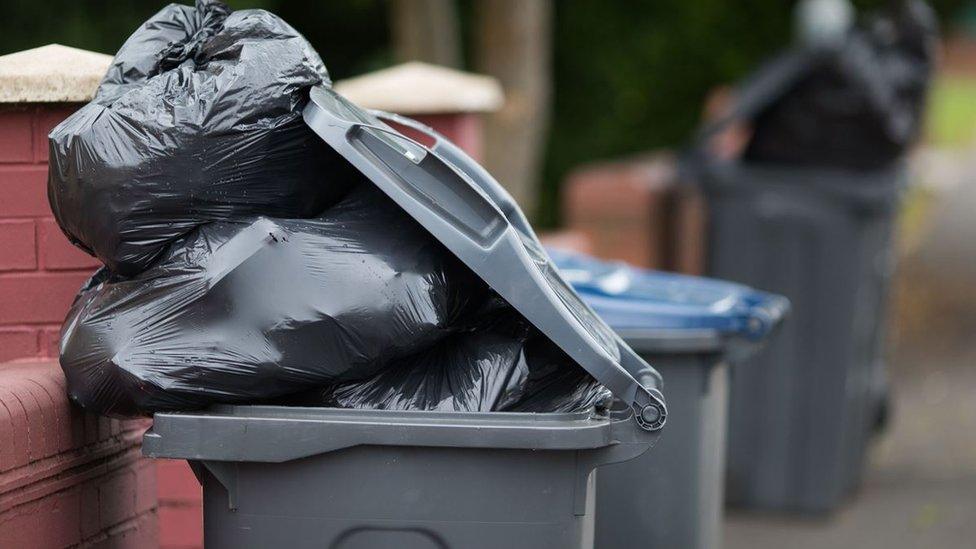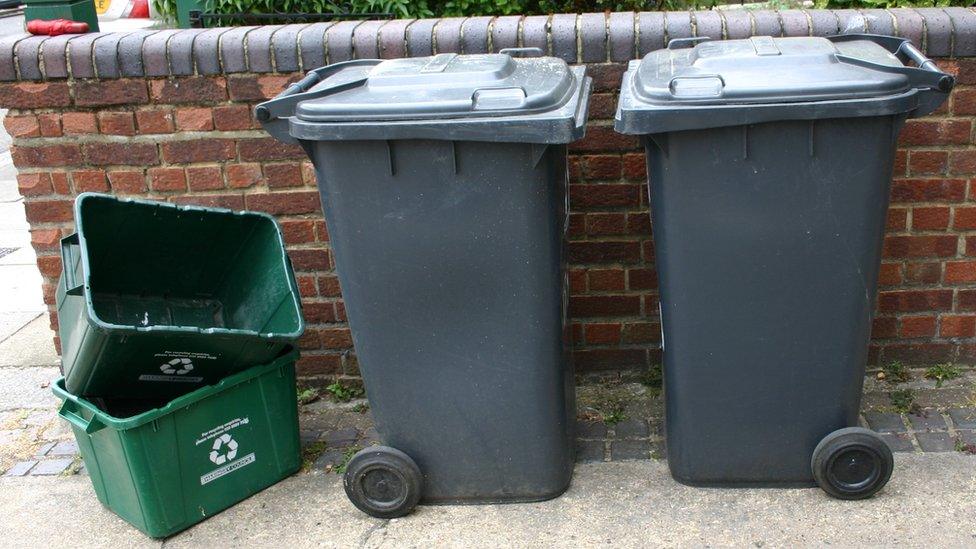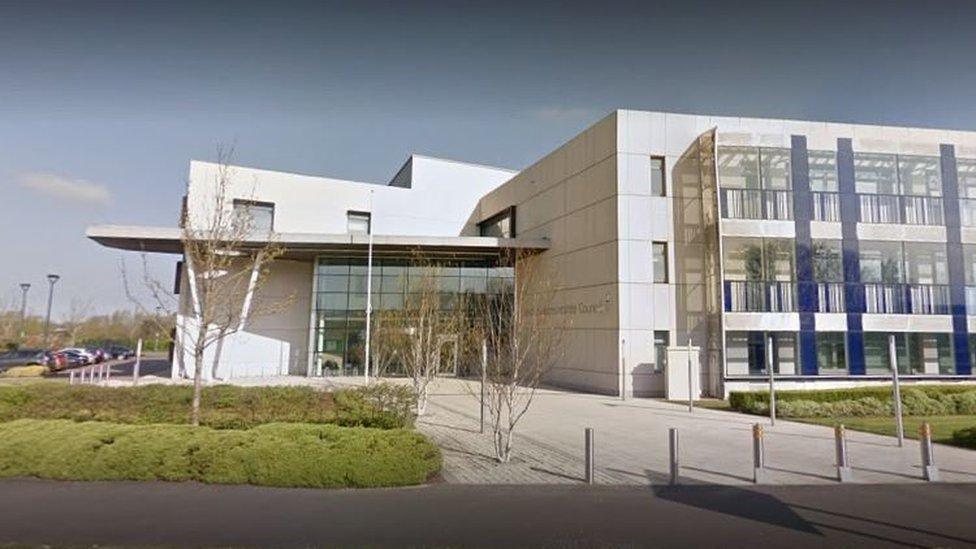South Gloucestershire plans to reduce black bin collections set to be halted
- Published

South Gloucestershire Council’s consultation on the future of its waste collections is open until January 7
Plans to reduce black bin collections in South Gloucestershire are set to be halted by new government guidance.
The council is consulting on plans to change fortnightly collections to as little as once a month.
But the government is set to require local authorities to collect waste at least once a fortnight.
A spokesperson for the council said increased recycling and a "funding crisis" for local authorities are being ignored.
The Department for Environment, Food & Rural Affairs' (Defra) plans were announced last month, a "minimum service standard" of fortnightly black bin collections will be implemented as statutory guidance to councils, alongside a weekly food collection.
It also announced "dry" recycling materials, such as glass, tins and plastic, could be left in the same bins and would be collected by all councils to end the current "postcode lottery".
Defra said additional funding would not be provided as authorities were already expected to provide the service, paid for through council tax.
"It would create perverse incentives to give extra funding to the small number of councils that have cut such essential core services," it said.
More recyclable waste
However, authorities could continue to charge for garden waste collections.
Earlier this year South Gloucestershire Council announced plans to double these costs from £30 to £60 a year.
Responding to Defra's announcement, councillor Leigh Ingham said: "These announcements fail to acknowledge the funding crisis facing local authorities across the country nor do they specify where funding will come from.
"It also ignores the fact that more waste is becoming recyclable and the amount of 'black bin' waste is reducing."
According to the Local Democracy Reporting Service, the council said it is seeking new providers for both residual waste and recycling collection services in South Gloucestershire, to begin in 2025.
"Increasing rates of recycling is better for the environment and it is also cheaper for the council to collect and process recyclable materials than to send them to landfill or for incineration, because fewer residual waste collections are necessary," a council spokesperson said.
"We will consider residents' feedback and indications about the legal framework that could govern waste services as we make decisions for the future next year."

Follow BBC West on Facebook, external, X, external and Instagram, external. Send your story ideas to: bristol@bbc.co.uk, external
- Published9 October 2023

- Published11 October 2022

- Published16 June 2023
